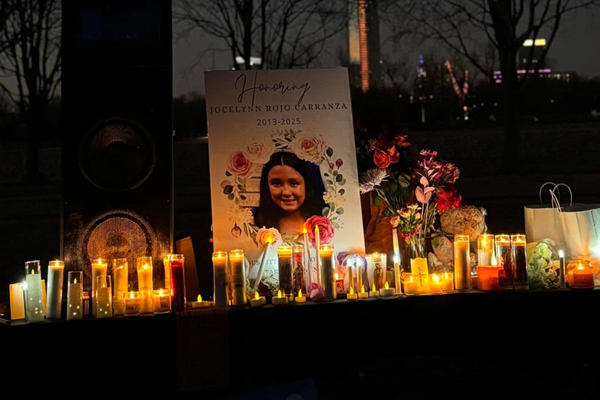
Being a parent is expensive. Being a criminal is also expensive, whether you lose economic opportunities to avoid apprehension or spend money on your defense if apprehended or go to prison and lose everything and, marked as a felon, emerge unemployable. Abortion is an economic issue, because when it’s not legal, those are the two remaining options, leaving out being dead, which you could argue is either very expensive or absolutely beyond the realms of money and price. And being dead is also on the table because women have all too often died from lack of access to reproductive healthcare, including abortions (to say nothing of being unable to leave an abuser, to whom pregnancy and children can bind you more tightly). They are facing more of that now.
Having no options but to be dead, criminal or a parent is not a sane or moral argument for parenthood, and it’s also pretty different than having certain inalienable rights, including life, liberty and the pursuit of happiness. Also, now that abortion is unavailable under almost all circumstances in Texas and other states, it’s an economic justice issue in that those with the financial capacity to take time off, travel in search of care and pay for it out of pocket are not affected the way those who cannot do so are. And those who can afford to get an abortion under these circumstances are also those who can afford to defend themselves against possible criminal charges.
All of which is to say, abortion is an economic issue and a labor issue, as well as a human rights and healthcare issue, as the AFL-CIO and other labor unions have recognized. So it’s been confounding to see some supposedly progressive men say that people should talk about economics instead of abortion, as if the loss of reproductive rights isn’t a huge economic blow to anyone facing the possibility of an unwanted pregnancy. The last days before the midterm elections should include robust Democratic conversations about defending rights and pursuing economic justice, with access to abortion central to both.
Access to birth control and abortion laid the groundwork for US women to begin to claim financial, professional and educational equality – a goal still far from realized, overall, but reproductive rights flattened the mountains and filled in the chasms a little. Taking that away pushes women back into the grim era when an unplanned, unwanted pregnancy could upend a life, stop an education, stymie a career, force unwanted dependency on the person who caused that pregnancy – an era when self-determination was an aspiration, not a given.
The Dobbs decision striking down Roe v Wade on 24 June was cavalier about all this. The majority opinion pretends that bearing a child no longer has significant social and economic impact. It cites among its justifications that “attitudes about the pregnancy of unmarried women have changed drastically; that federal and state laws ban discrimination on the basis of pregnancy; that leave for pregnancy and childbirth are now guaranteed by law in many cases; that the costs of medical care associated with pregnancy are covered by insurance or government assistance; that states have increasingly adopted “safe haven” laws, which generally allow women to drop off babies anonymously; and that a woman who puts her newborn up for adoption today has little reason to fear that the baby will not find a suitable home”. In other words, there is no reason not to have an unplanned or unwanted child; doing so is no big deal.
All of which are callous lies. The right not to bear children isn’t just about respectability for the unmarried, and to frame it that way while ignoring the profound and lasting emotional, psychological and physical as well as financial impact of carrying a pregnancy for nine months and giving birth is outrageous. Discrimination against people who may get pregnant or are pregnant continues despite those laws; many pregnant people continue to lack access to healthcare; and the fact that a baby can be handed over is no justification for being forced to bear it. Furthermore, as another branch of the US government that the supreme court could have consulted reports: “The number of children waiting to be adopted also fell in fiscal year 2020 to 117,000”; the number in foster care was over 400,000.
One of the striking things about the conversation in defense of abortion rights in recent months is the testimony by those who’ve undergone pregnancy, miscarriage and childbirth about how physically grueling and even life-threatening they can be. Pregnancy can incapacitate women for months, which is obviously economically devastating to a poor person working in the gig economy or, say, in a nail salon or a fast-food restaurant. It can be an overwhelming experience, interfering particularly in the ability to perform physical labor: the judge may be able to toil on when the janitor cannot. And a lot of people are making a living through work that is physically demanding.
Another striking new note has been the insistence that we need to stop defining abortion as a stand-alone right and look at the criminalization of pregnancy and motherhood, especially for poor and nonwhite women. “More than 50 women have been prosecuted for child neglect or manslaughter in the United States since 1999 because they tested positive for drug use after a miscarriage or stillbirth,” reported the Marshall Project, while noting that miscarriages are common under all circumstances. “Sentences have ranged from probation to 20 years in prison. Women prosecuted after pregnancy loss are often those least able to defend themselves, the investigation found. They typically work low-paying jobs, are often victims of domestic abuse, have little access to healthcare or drug treatment and rely on court-appointed lawyers who advise them that pleading guilty is their best option.” Too, some women die from pregnancy and childbirth, and thanks to unequal medical care, Black women have the highest incidence of such deaths. Pregnancy and childbirth can also cause permanent physical changes, including lasting pain and disability.
The laws making the most intimate conditions of a body and life subject to legal intrusion are reportedly already preventing pregnant people from seeking healthcare and spreading well-founded fear. Making the administration of an abortion a crime is frightening medical caregivers and interfering with their ability to provide care. Some of the proposed abortion bans would include life-saving abortions, and we have already seen cases in which medical care was withheld until a woman’s life was actively in danger. Women are already being denied prescriptions when those drugs can be used in abortions, another way that taking away abortion rights is turning into a broader loss of rights.
The financial and professional impact of parenting in heterosexual relationships still mostly falls on women. The majority of women who have abortions are already mothers raising kids; we are in a childcare crisis that has, along with the long months schools were shut during the pandemic, crushed a lot of women’s working lives and financial independence.
As Congresswoman Alexandria Ocasio-Cortez noted in late September, “When the powerful force people to give birth against their will, they trap millions in cycles of economic setback and desperation. Especially in a country without guaranteed healthcare. And desperate workers are easier to exploit.” The supreme court majority pretended it was undermining access to reproductive rights because they have no significant impact, but of course the court’s agenda was the opposite: to impose the conditions that make women subordinate in rights and economic status.
Rebecca Solnit is a Guardian US columnist. Her most recent books are Recollections of My Nonexistence and Orwell’s Roses







